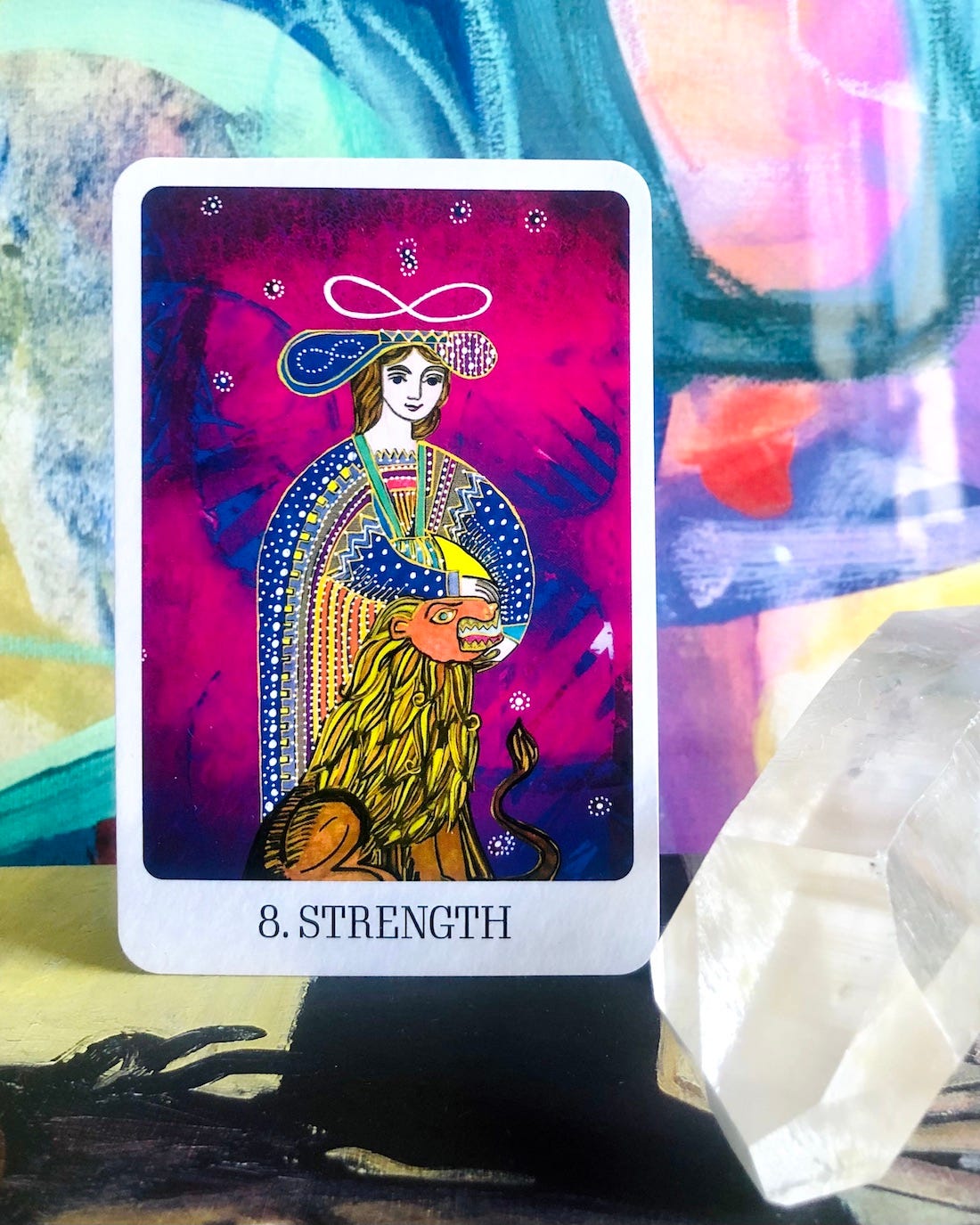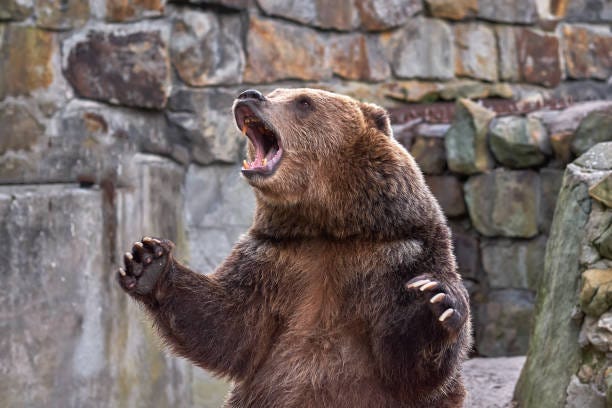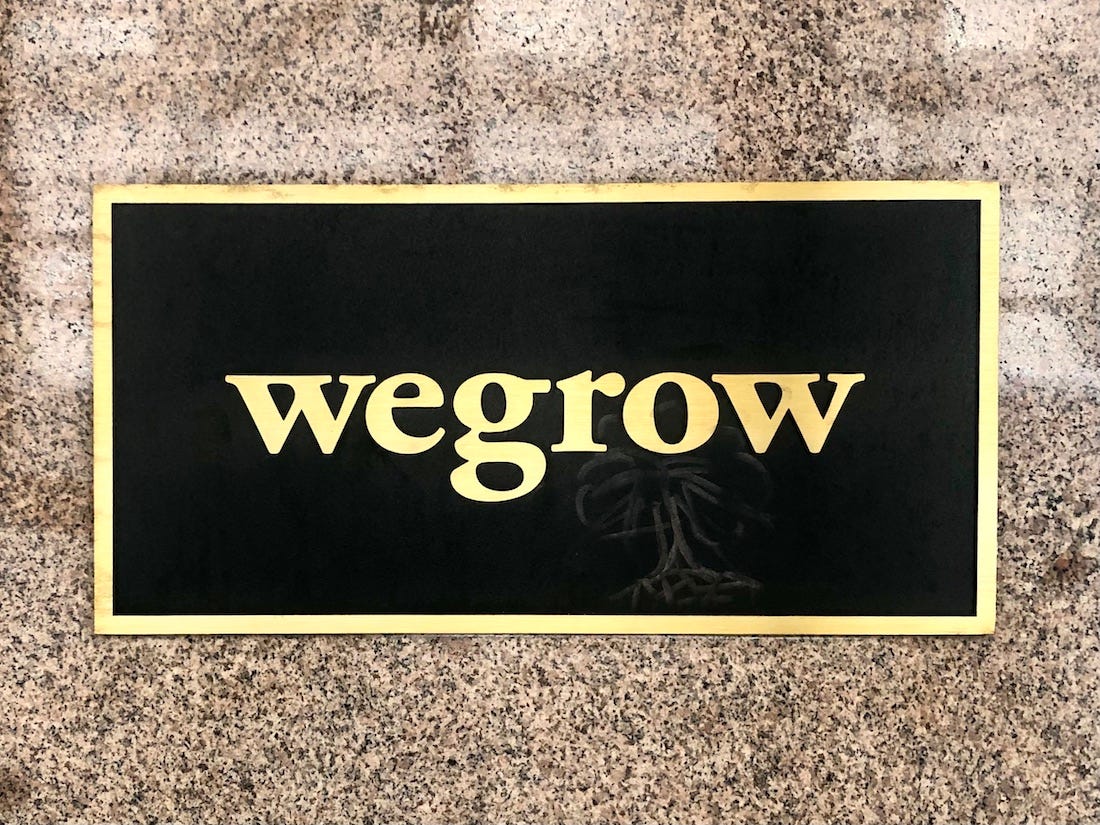Every Sunday, my partner and I have the same conversation.
I’ll sweep into the room with a particular expression we have taken to calling “De Niro face.” (Because no one can frown quite like Bob.)
“I’m not sure about today’s newsletter,” I’ll say. “I’m not feeling it.”
“I like it.”
“But is it relevant?”
“Yes.”
“Will anyone relate?”
“You say this every week.”
My name is Caroline and I am a bonafide imposter.
For the last fifteen-to-twenty years, I have somewhat successfully impersonated an adult human. I have acted like I had my shit together, on the Internet and otherwise, because that is what people in modern society do. Inside, however, I have often felt confused, terrified, and despondent.
If ever I mention this, to friends or other trusted connections, the other person immediately replies with their own tales of perceived fraudulence. It seems that everyone, at one time or another, has experienced The Great Self Doubt.
In popular culture, we call it Imposter Syndrome. There is a test (or fifty) to determine if, and to what extent, one experiences this affliction. But as any seasoned self-doubter will attest, you know it when you feel it. The knot in the stomach. The lingering anxiety that at any moment, someone is going to expose you as a fraud.
There are countless articles written about how to overcome such feelings, suggesting everything from keeping a running list of your accomplishments, to talking to yourself in the mirror, to striking a “power pose” to help boost confidence.
I’ll admit that I have been known to hold my arms above my head in the lead-up to important moments. But when it comes to deeper seated feelings of doubt, these suggestions feel like rational solutions to a rather irrational problem. Like trying to negotiate with a grizzly bear.
Over the last few years, I have written ten books, and yet, every time I begin a project, I stare at the cursor, riddled with the fear that I can’t compose a sentence. Eventually, the feeling passes long enough for me to create something, maybe even something I love. But it isn’t gone. I feel it lingering in the recesses of my mind, waiting to pounce at my next pursuit.
Our feelings, by definition, are internal. No matter how universal the weather of our internal landscape, we often suffer alone — even if we’re silently suffering together.
A recurring scene:
I arrive at a group fitness class. I’ve been here many times before — I know the moves, the music, the choreography nearly by heart.
I consider standing in the front of the studio, but then I think better of it. I don’t want to call attention to myself. I’m not the fittest in the room. I do not rock a sports bra without a shirt, like some of my peers. I feel tired. A bit dehydrated. More than a little bit shy.
I choose a spot in the second row. “This is perfect,” I think. “I can see the mirror but I won’t embarrass myself.”
A few moments before class begins, a person I’ve never seen strides into the room and plunks their towel and water bottle directly in front of me. As the music starts, they proceed to (very confidently) bungle every move. I no longer see my reflection. It has been eclipsed by the price of my own self-doubt.
Last week, I found myself on West 19th Street, where I stumbled across this sign. I stared at it for longer than was appropriate, paying it the kind of rapt attention that is typically reserved for great works of art. To me, it felt like unearthing a relic, the handprint of Icarus himself. Eventually, I snapped a photo and went on my way.
If the branding isn’t familiar, this is a vestige of WeGrow, the now defunct childhood education branch of WeWork, a company whose history is largely a study of the enigmatic characters at its center. There is much to read about WeWork co-founder and former CEO Adam Neumann and his wife Rebekah. The Neumanns’ meteoric rise and rapid fall was, and continues to be, a circus I cannot look away from. (I devoured this documentary, this book, this Vanity Fair piece, all of which I recommend should you wish to traverse down this rabbit hole.)
WeGrow, the $42,000-a-year elementary school and Rebekah’s passion project, shuttered in 2019 amidst the company’s financial trouble. In June 2020, she bought back the rights to the curriculum, with plans to re-launch it as ‘Student of Life For Life,’ or SOLFL (pronounced “soulful.”)
I find this story both fascinating and inspiring, sort of like the way I feel when I watch a nature documentary. You mean to tell me there are weird little birds that do a freakishly choreographed mating dance? And bears that pole dance on a tree? And CEOs with a messiah complex who manage to secure multibillion dollar investments with the strength of their own bravado? Ah, the majesty of nature.
How do some people believe in themselves, and their vision, to a fault? What thoughts occupy their minds upon first waking, or plague them in the night? Do they have the same doubts, but are more skilled at assuaging them? Or do they sleep soundly, boldly, confidently, unafraid to fall?
Most of us will not have the chance to build and destroy a $47 billion dollar unicorn. Nor should we. But if someone can crash and burn — so epically, so publicly — and still get back up and make like a phoenix, maybe there is something to be gleaned from it.
Ironically, the sign also gave me comfort, because its message is true.
We grow. We do! We learn as we go, and hopefully we get better with experience. As a friend recently said, “The first time you do something is always the worst. When I first became a manager. The first time I have to present to a new client. The first day at a new job.”
When you find yourself in a daunting or unfamiliar place — new job, new town, new project, new parenthood — you don’t necessarily know that everyone else once was (or still is) winging it, too.
Brené Brown calls them FFTs, “f*cking first times.” You will never be good, or skilled, or comfortable at something you’ve never done before. If you acknowledge that going in, and temper your expectations accordingly, it can help quiet the discouraging voice.
The truth is, no reasonable person expects perfection.
The best memoirs are the ones that offer a peek behind the curtain, at the subject’s struggles, demons, insecurities.
The most inspiring leaders are the ones who can relate on a human level.
It’s funny that our self-doubt is often born from perfectionism, when our flaws are what allow us to connect.
Another recurring scene:
I am in a bookstore, holding a copy of the title du jour.
I am reading words — someone else’s words, words I did not write — and they are excellent. Superhuman. Brilliant, extraordinary words. Cadenced as music. Metered as poetry. Resonant as prayer.
This confirms it, I think. I cannot write. My sentences will never come out this way. What is the point? Who am I to try?
I buy the book. Now it can taunt me at home, too.
My desk faces a wall, which bears a sticky note containing these words: “clearly, and with great honesty.”
It’s a quote from Writing Down the Bones, one of my favorite books about writing (with a touch of Zen). I first stumbled across this phrase some twenty years ago, and it has stayed with me since. For all the fancy advice out there, all the clever turns of phrase, this, to me, is the single most important directive when it comes to writing…and maybe all of life.
The most we can do — the best we can offer one another — is great honesty.
Not to get too Big Bird about it, but the best thing you have to offer is you. Not the resumé version, or the headshot version, but the core of who you are, who you have always been. The world needs your stories, your vision, your experience, your truth.
If we’re aiming for perfection — a fantasy, an impossibility, a cruelty — we’re inevitably going to fall short. But if we’re aiming for authenticity, then we can’t fail.
A beautiful truth: You cannot possibly be an imposter at being yourself.
Card of the Week
Here is this week’s card for the collective, as well as some thoughts to carry into the days ahead. As most modern readers will tell you, the tarot is not about fortunetelling, nor is it about neat, definitive answers. The cards are simply one path to reflection, a way of better knowing ourselves and others through universal themes. If this reading resonates with you, great! And if not, no worries. Take whatever may be helpful and leave the rest.

The strongest species on the planet is… the dung beetle.
They may not be the biggest or the buffest or the scariest, but they pack the most might. They also deal with a lot of (literal) shit. Strength, it turns out, has little to do with appearances.
Back in the human world, we’ve all heard stories about moms who summoned the ability to move a car to save a child, or the sudden courage to fight off a bear. That’s called '‘hysterical strength,” a phenomenon that is both real and incredible. But that isn’t necessarily the kind of strength this card would like us to consider.
Great strength, it tells us, is also present in subtle ways. Perseverance. Willpower. Determination. Consistency. Mindfulness. It is less about domination or control of others, and more about self-knowledge and self-mastery.
Strength takes many forms. Having the courage to go it alone. Standing beside someone who is grieving. Turning down an offer that doesn’t feel right. Confronting your inbox. Cleaning your home. Getting up, greeting the day, and doing it all again.
There is strength in showing up, even when you don’t want to. There is strength in resting, when that is what you need.
This card shows a character who has tamed a lion with a gentle, almost otherworldly, touch. Traditionally, the lion is a symbol of courage and ferocity. But in the context of this week’s message, it can also be the stuff that roars within us. The noise, the fear, the anxiety. The internalized messages and negative self-talk. Strength is our ability to talk back.
True strength, it tells us, is internal. It may be imperceptible to others, but that doesn’t lessen its power. If we fall prey to the societal conditioning that ‘strength’ is primarily physical, we miss out on all the ways we are, at this very moment, strong.
In the days ahead, take notice of the strength you didn’t know you had. The credit you haven’t been giving yourself. The resolve, empathy, humor, and patience that have led you where you are today.
This week, be mindful of your own inner lion. Is it a cheerleader or a naysayer? Does it roar or just stalk silently in the background? Whatever form it may take, remember that you are in control. You have the power to look it in the eyes, pet its furry head, and set the record straight.
Thank you so much for reading! If you enjoyed this letter and would like to receive future installments in your inbox every Sunday, please consider becoming a subscriber.















I'm so glad you posted this, it could not have been more timely.
Love your writing so much!